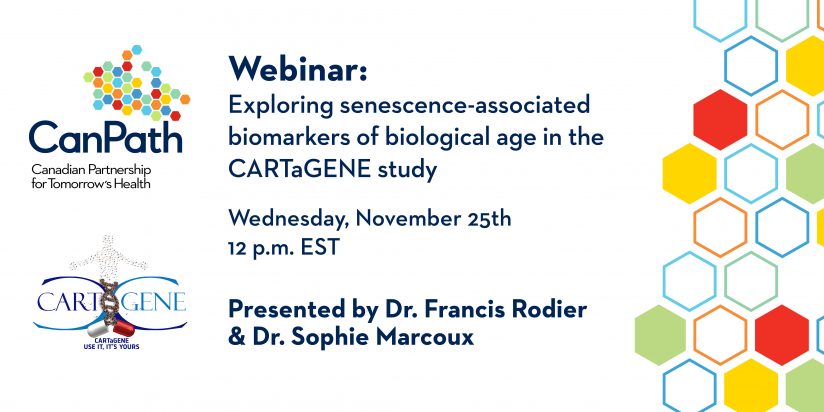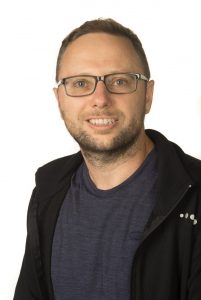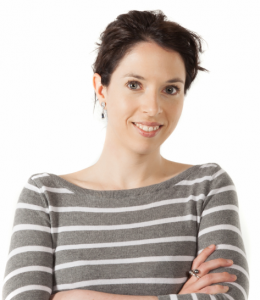Webinar: Exploring senescence-associated biomarkers of biological age in the CARTaGENE study

About the Webinar:
Learn how Professor Rodier’s research team is using CARTaGENE data and biosamples to develop cellular senescence biomarkers of biological age, as opposed to simply using chronological age as a risk factor.
These include a circulating profile of proteins in the blood, as well as a molecule termed TREC (T-cell receptor excision recombination circles), which is also easily measured in the blood. TRECs reflect the output of the thymus, which is known to involute with age, and thus indirectly represent immuno-senescence. We propose the measurement of biological age will be more accurate than chronological age to highlight individuals at risk for, or already harbouring, age-associated health problems.
Please note that some unpublished research has been edited out of the presentation. This webinar was presented in French with slides available in English.
View the English presentation6 MBDownload
About the Presenters:
Dr. Francis Rodier

Dr. Rodier is an Associate Professor in the Department of Radiology, Radio-Oncology and Nuclear Medicine at the Université de Montréal’s Faculty of Medicine. Dr. Rodier trained as a microbiologist and later obtained his Molecular Biology PhD by exploring carcinogenesis at Université de Montréal in 2005. He then completed post-doctoral research at the University of Berkeley and Buck Institute for Age Research in California where he developed his interests in DNA repair signaling, oncology and aging, allowing the identification of a new connection between DNA damage and inflammation. He established his lab in 2010 at the Centre de recherche du centre hospitalier de l’Université de Montréal (CRCHUM) and Institut du cancer de Montréal where he explores cellular and tissue actors involved in cancer therapy with a focus on cell fate decisions like senescence and apoptosis.
Dr. Sophie Marcoux

Dr. Marcoux is a medical doctor specializing in public health and preventive medicine. She is also a post-doctoral research fellow at the Centre de recherche du Centre hospitalier de l’Université de Montréal (CRCHUM). Her main research interests are post-cancer treatment survivorship issues and the impact of social health inequities on cancer patients. She holds a BSc in biochemistry and an MSc in experimental medicine from McGill University, and completed a biomedical sciences PhD at Centre de recherche du CHU Sainte-Justine / Université de Montréal. She completed her medical training at the Université de Montréal.